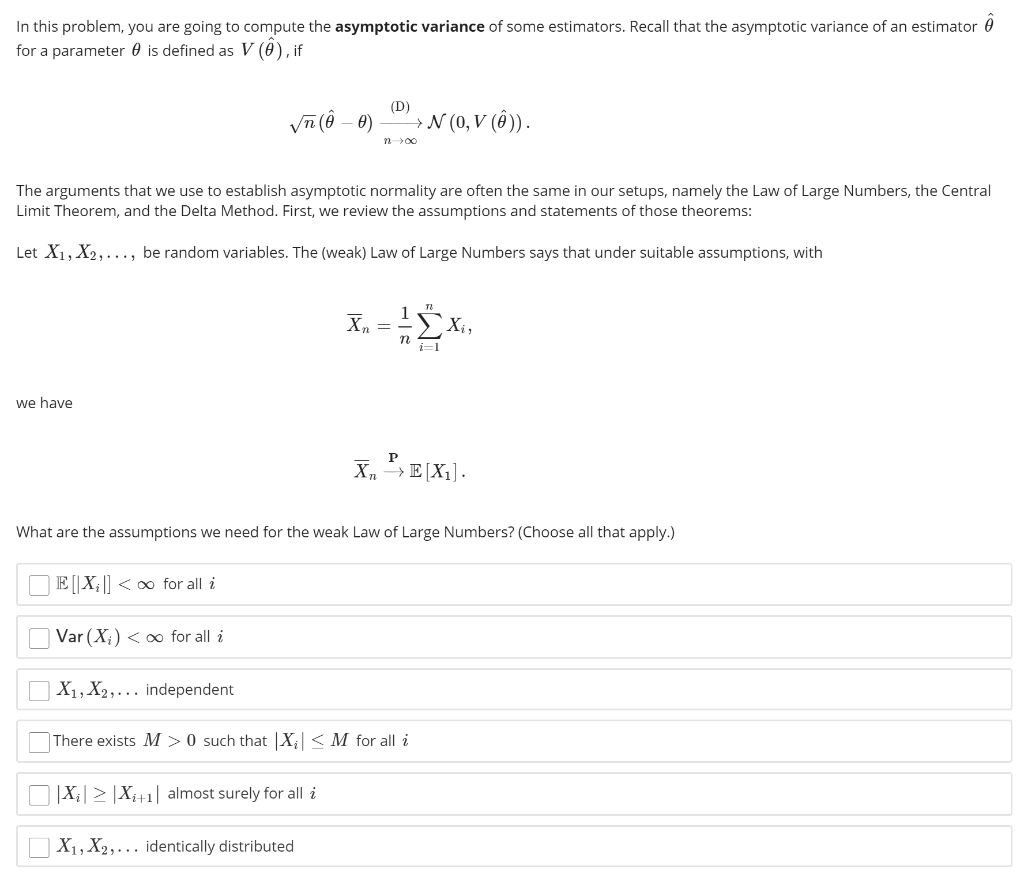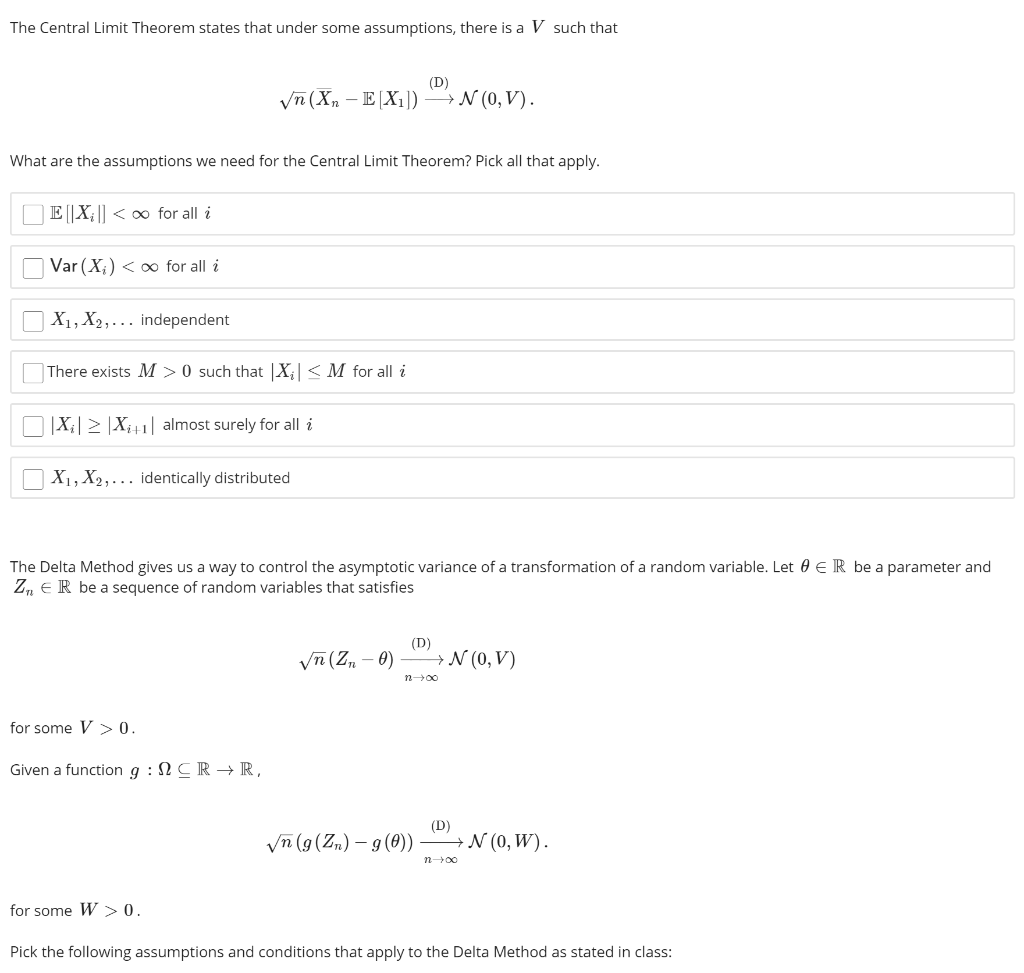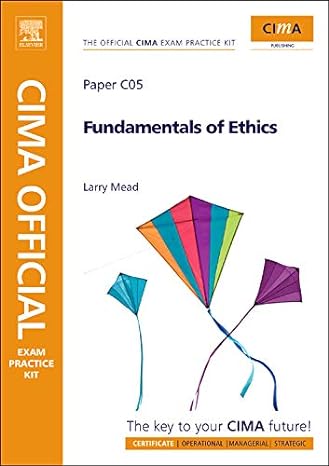


In this problem, you are going to compute the asymptotic variance of some estimators. Recall that the asymptotic variance of an estimator for a parameter @ is defined as V (0), if (D) vl ) N (0,V ()). The arguments that we use to establish asymptotic normality are often the same in our setups, namely the Law of Large Numbers, the Central Limit Theorem, and the Delta Method. First, we review the assumptions and statements of those theorems: Let X1, X2,..., be random variables. The (weak) Law of Large Numbers says that under suitable assumptions, with 15 xi, Xn= n i=1 we have P X. > E(X) What are the assumptions we need for the weak Law of Large Numbers? (Choose all that apply.) E[X] 0 such that |X;|
Xi+1) almost surely for all i X1, X2,... identically distributed The Central Limit Theorem states that under some assumptions, there is a V such that (D) vn(Xn - E(X1) N (0,V) What are the assumptions we need for the Central Limit Theorem? Pick all that apply. EX;]] 0 such that X; |X;+1| almost surely for all i X1, X2,... identically distributed The Delta Method gives us a way to control the asymptotic variance of a transformation of a random variable. Let @ R be a parameter and ZER be a sequence of random variables that satisfies VT(Z - 6) (D) N (0,V) n- for some V >0. Given a function 9 : NCR + R, (D) Vn (g(Zn) g(0) N (0,W). n>00 for some W >0. Pick the following assumptions and conditions that apply to the Delta Method as stated in class: g is monotonically increasing g is continuously differentiable at 0 W = g'@?v W = g(0)V W = g' ( OV Submit You have used 0 of 3 attempts Save In this problem, you are going to compute the asymptotic variance of some estimators. Recall that the asymptotic variance of an estimator for a parameter @ is defined as V (0), if (D) vl ) N (0,V ()). The arguments that we use to establish asymptotic normality are often the same in our setups, namely the Law of Large Numbers, the Central Limit Theorem, and the Delta Method. First, we review the assumptions and statements of those theorems: Let X1, X2,..., be random variables. The (weak) Law of Large Numbers says that under suitable assumptions, with 15 xi, Xn= n i=1 we have P X. > E(X) What are the assumptions we need for the weak Law of Large Numbers? (Choose all that apply.) E[X] 0 such that |X;| Xi+1) almost surely for all i X1, X2,... identically distributed The Central Limit Theorem states that under some assumptions, there is a V such that (D) vn(Xn - E(X1) N (0,V) What are the assumptions we need for the Central Limit Theorem? Pick all that apply. EX;]] 0 such that X; |X;+1| almost surely for all i X1, X2,... identically distributed The Delta Method gives us a way to control the asymptotic variance of a transformation of a random variable. Let @ R be a parameter and ZER be a sequence of random variables that satisfies VT(Z - 6) (D) N (0,V) n- for some V >0. Given a function 9 : NCR + R, (D) Vn (g(Zn) g(0) N (0,W). n>00 for some W >0. Pick the following assumptions and conditions that apply to the Delta Method as stated in class: g is monotonically increasing g is continuously differentiable at 0 W = g'@?v W = g(0)V W = g' ( OV Submit You have used 0 of 3 attempts Save









